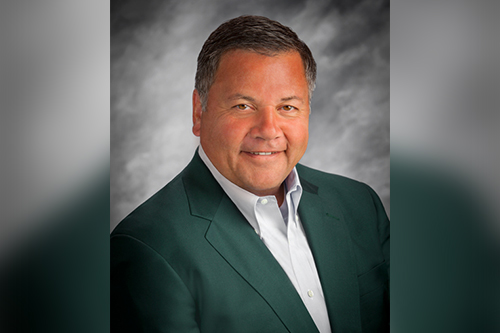Unique Ways Entertainment Firms Are Meeting Their COVID Duty Of Care


When businesses reopen after the forced COVID-19 lockdown, they have a duty of care relative to the general public. Firms that understand that will do everything they can to implement social distancing measures, provide sanitary services, and manage the amount of people that are inside a location at any given time so that people feel safe.
These measures, if implemented clearly and visibly, will help to protect businesses if they’re slapped with the dreaded accusation of: ‘I contracted COVID-19 while on your premises.’ With regard to bringing employees back to work, the employer’s duty of care is much the same, according to Scott Carroll (pictured), executive vice president and program director at Take1 Insurance, an MGA that specializes in entertainment and event liability insurance. It’s all about making employees feel safe and secure as they re-enter the workplace.
Read next: Does "All Risk" insurance cover pandemics?
Carroll highlighted a unique risk management measure he’s seen implemented in the film industry, whereby each individual unit – whether that’s the production team, the cast, costume, hair and make-up, catering, transportation, and so on – is assigned to a pod. Once the initial COVID checks are made – everyone must prove before entering a production location that they’ve been tested and they are COVID-free – then everyone is placed into a pod and their movements traced via radio frequency identification (RFID) technology around the location. If someone then falls ill with COVID-19 on shoot, the insured can use contact tracing technology to see whether that person was in contact with people from other pods, who will then need testing.
“That’s largely what the film industry is doing, and in my opinion, I think it’s also going to have application in the live event industry,” said Carroll. “This will enable live event venues to track who is working at their site to get a show ready, and confirm that the venue was COVID-protected and everyone was tested before being allowed on site. It’s all about being able to validate or contract trace, or at least give evidence and information to those performing contact tracing, to ensure that everybody at their site or venue is as safe as possible.”
When asked whether he thought underwriters might start requiring risk management procedures like COVID-19 contact tracing before taking on an entertainment risk, Carroll said it’s a “tricky” challenge for carriers to unpick. If they require this kind of action upfront, that suggests they have an exposure they may not be willing or wanting to recognize. And if they don’t recognize the exposure, then they wouldn’t feel the need to ask the question in the first place, he added.
Read more: High risk of discrimination claims as employees return to work
“As an MGA for the live entertainment space, I know that I will be asking more questions associated with the insureds procedures for COVID-related processes,” he told Insurance Business. “For instance, most of my insureds own the equipment that is used at show sites. Some of that equipment can be very high touch - think microphones, sound boards, and rolling cases that are bringing in the equipment. These are high touch products, so what are they doing to clean that equipment? How do they put it away when it comes back to their location? How do they know it has been cleaned? Are they worried about it?
“My questioning is more informational than it is that I’m concerned about it from an exposure perspective. It’s more a process of finding out what the insured does more so than other insureds to give the sense of comfort to their employers. And it goes back to this idea of their duty of care. Do they have a duty of care to act in a certain way? And thus, I think some questions are germane to the duty of care, but not necessarily specific to a worry of additional exposure. It’s more about what makes this business different from others. We appreciate those who do things differently.”
People Power: Building The Future Of Insurance One Career At A Time
The insurance industry is at a pivotal point. As emerging technologies reshape underwriting, claims processing, and cust... Read more
Private Equity's Great Divide: Is The Future Insurance-Funded Or Fee-Driven?
A fundamental shift is taking place at the top of the private equity industry. While firms like Blackstone remain commit... Read more
Japan's Next Battleground: The Insurance Sector Under Activist Pressure
Farallon’s push at T&D Holdings marks a shift in focus for activist capital targeting Japan’s untapped insurance... Read more
Cover And Conflict: Tensions Rise Between Insurers And Litigation Funders
Burford’s clash with Chubb signals a deeper rift in the legal-financial ecosystem A high-profile dispute between li... Read more
Underwater And Uninsured: How Climate Risk Is Reshaping The US Mortgage Market
As climate change intensifies, its effects are no longer confined to coastlines or news reports on extreme weather. In t... Read more
When The Raters Get Rated: What The Fitch–Kroll Feud Says About Oversight And Accountability
In a rare and unusually public confrontation between two of America’s credit rating agencies, a recent feud between Fi... Read more

